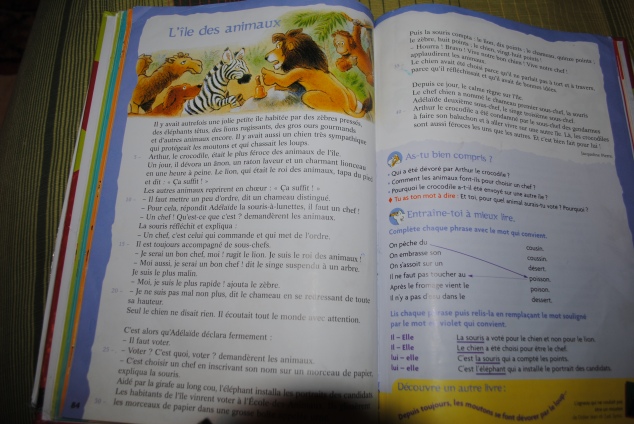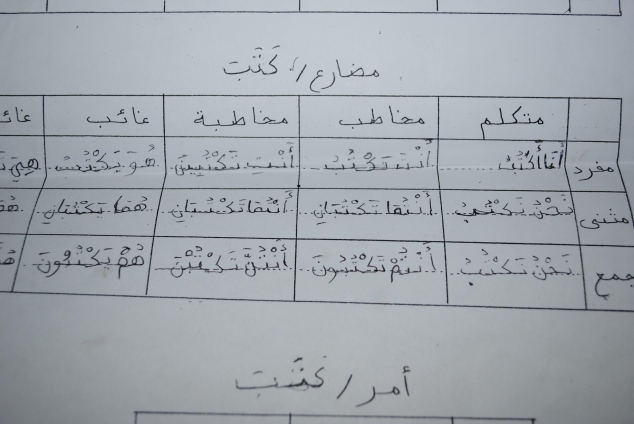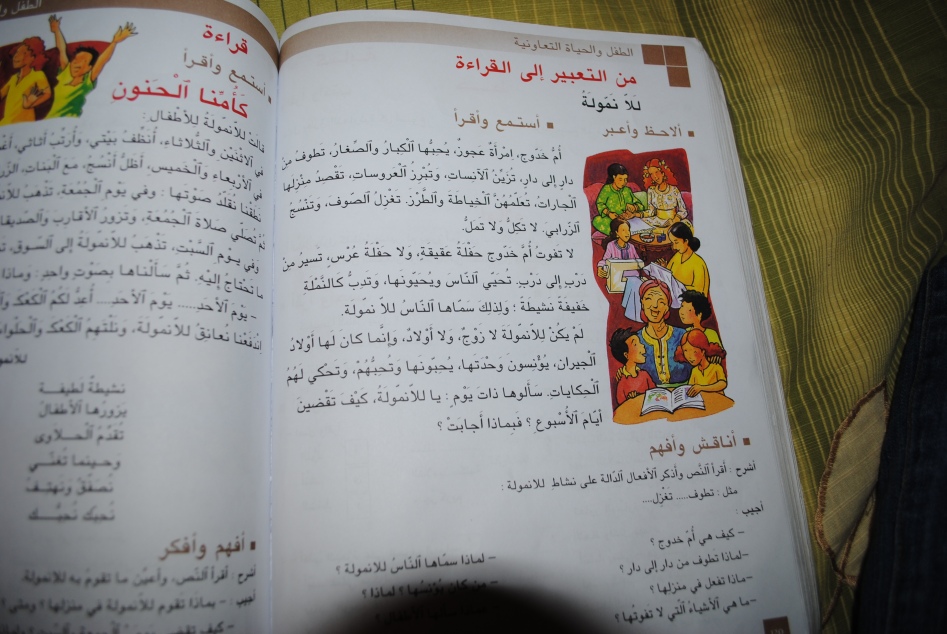Do you have what it takes to make it in a 2nd grade classroom in Morocco?
Let’s start with something nice and easy. French grammar! French is what the language teaching experts call a moderately inflected language. An inflected language is a language where the endings of the words change, depending on their position in the sentence. I don’t speak Latin, but I understand that Latin is a highly inflected language. You could tell just from looking at the word whether it’s a subject, and object, or something else.
In French conjugation the endings change for each personal pronoun. I’m trying to make it simple, I really am. Ok, so here is an example. The page on the right, below, is about conjugating the verb “avoir” (to be) in the future. The words in black are the verb. See how it’s different for the pronouns je, tu, il….? Compare that with English conjugation. I’ll have, you’ll have, she’ll have,…. they’re all the same. In this battle of easiness, English wins hands down.
Now, remember, all this is very important if you’re a 7 year old Moroccan kid, so pay real close attention. You will be studying French grammar for the next 10 years or so.
And now, a change of tempo, let’s go to French reading! Here is the text we are reading today. It’s about some talking animals who vote to elect their leader. Bizarre concepts here!
Ok kids, it’s noon, time to go home for lunch. See you at 2 o’clock!
Good afternoon, or should I say masaa el khair, since we are studying Arabic this afternoon.
Remember how this morning, we said French is an inflected language? Good. Because Arabic is a super duper inflected language. In Arabic, there are 15 personal pronouns. Yes, we have the standard I, you, she, he….we also have you two females, you group of males, you group of females…Arabic has different pronouns for masculine and feminine, and in addition to singular and plural, there is also dual (for addressing two people). And each one of these personal pronouns has a different conjugation. So let’s get right to it. Here is the verb “kataba” (to write), please conjugate it for each of the 15 different pronouns.
Ok, maybe that’s just too easy. Fine, let’s just go to reading. Today we will read about Lalla Tamoula, a good woman who teaches her neighbors how to sew, card wool, and weave rugs.
Oh, I hear the bell ring. Is it 5 o’clock already? Wow, time flies when you’re studying grammar.
Don’t forget your homework kids. I want you to memorize the first three sentences of our French text, for auto-dictation tomorrow. Also, don’t forget the math worksheet, science lessons, and poems I asked you to memorize.
See you tomorrow, and every other school day till you’re 18!




